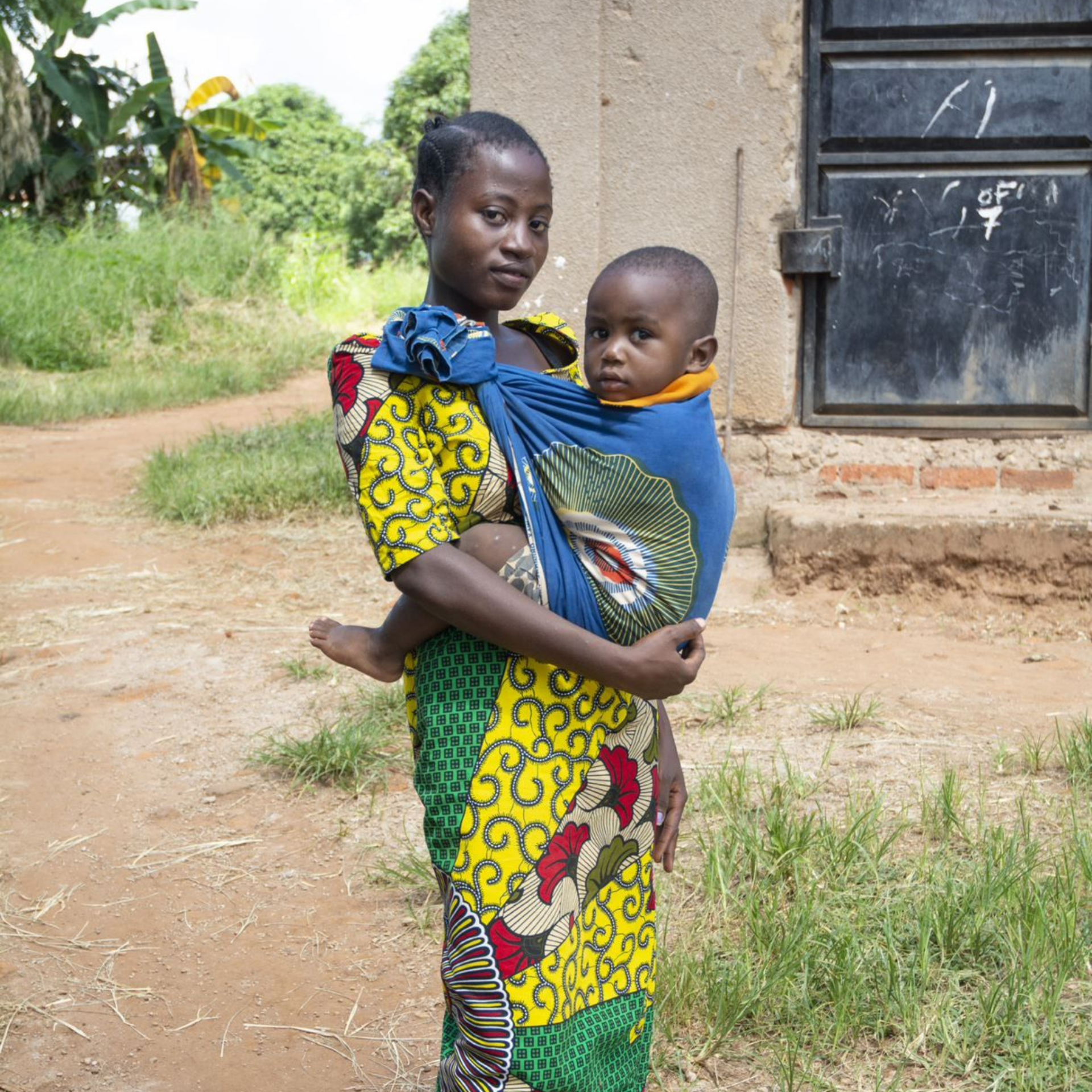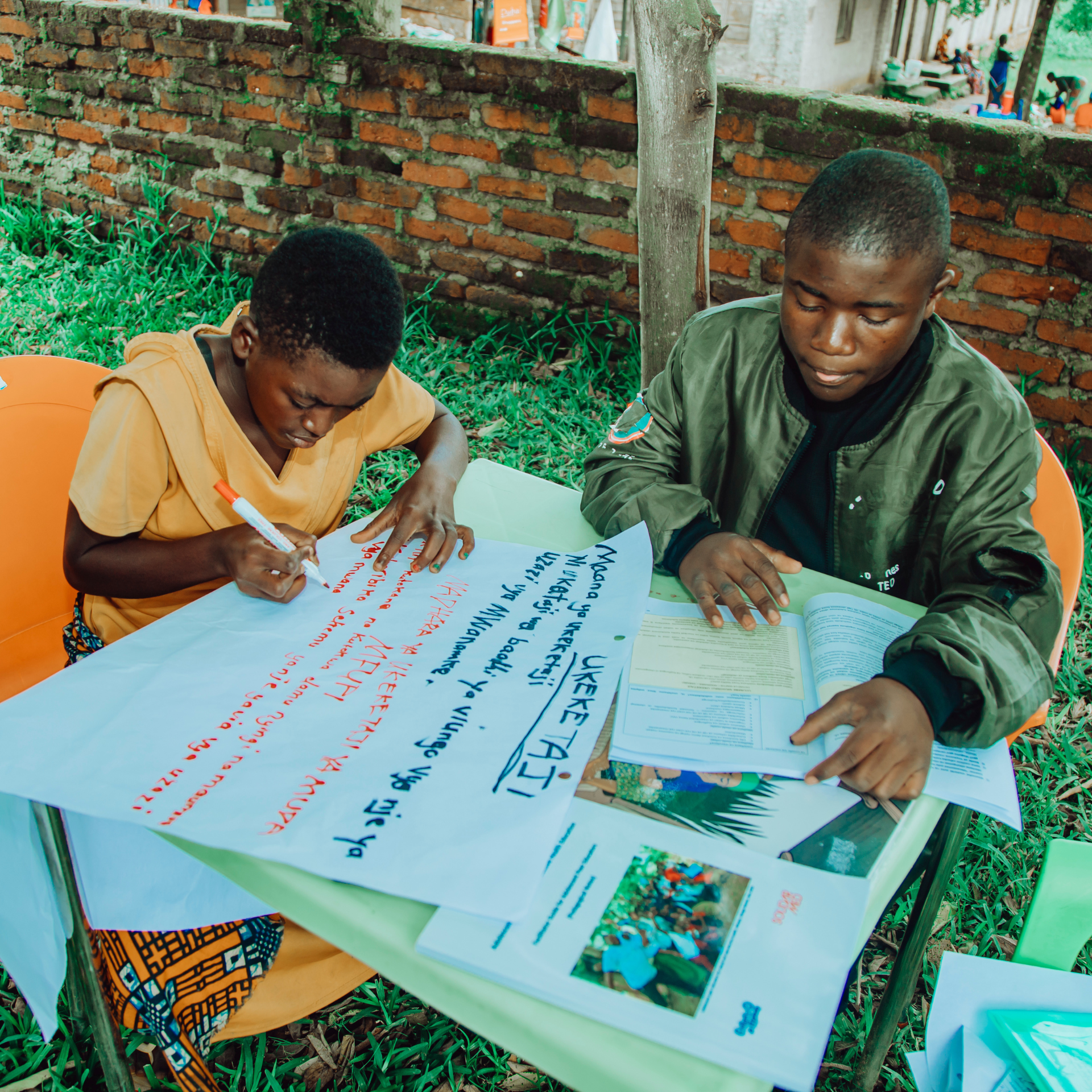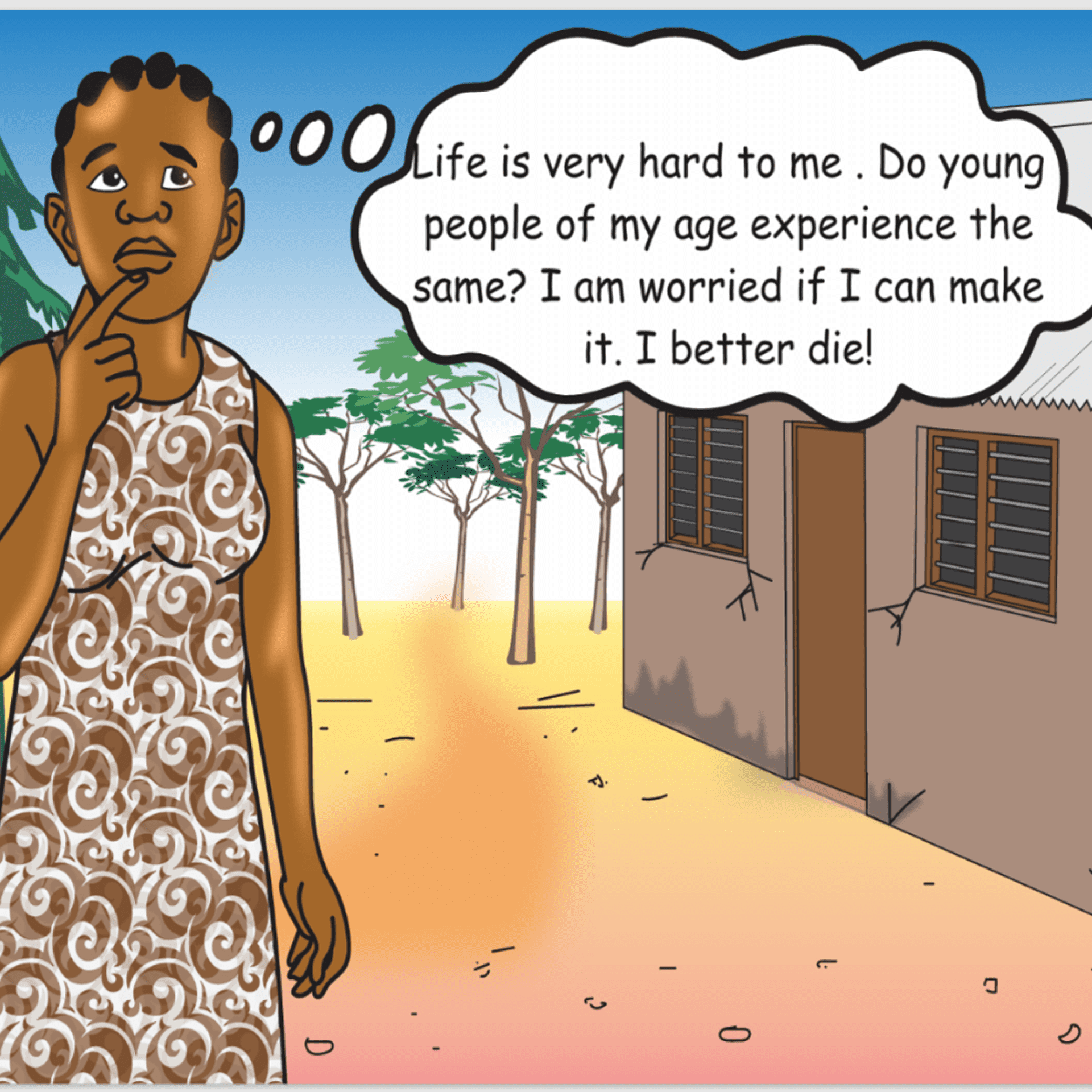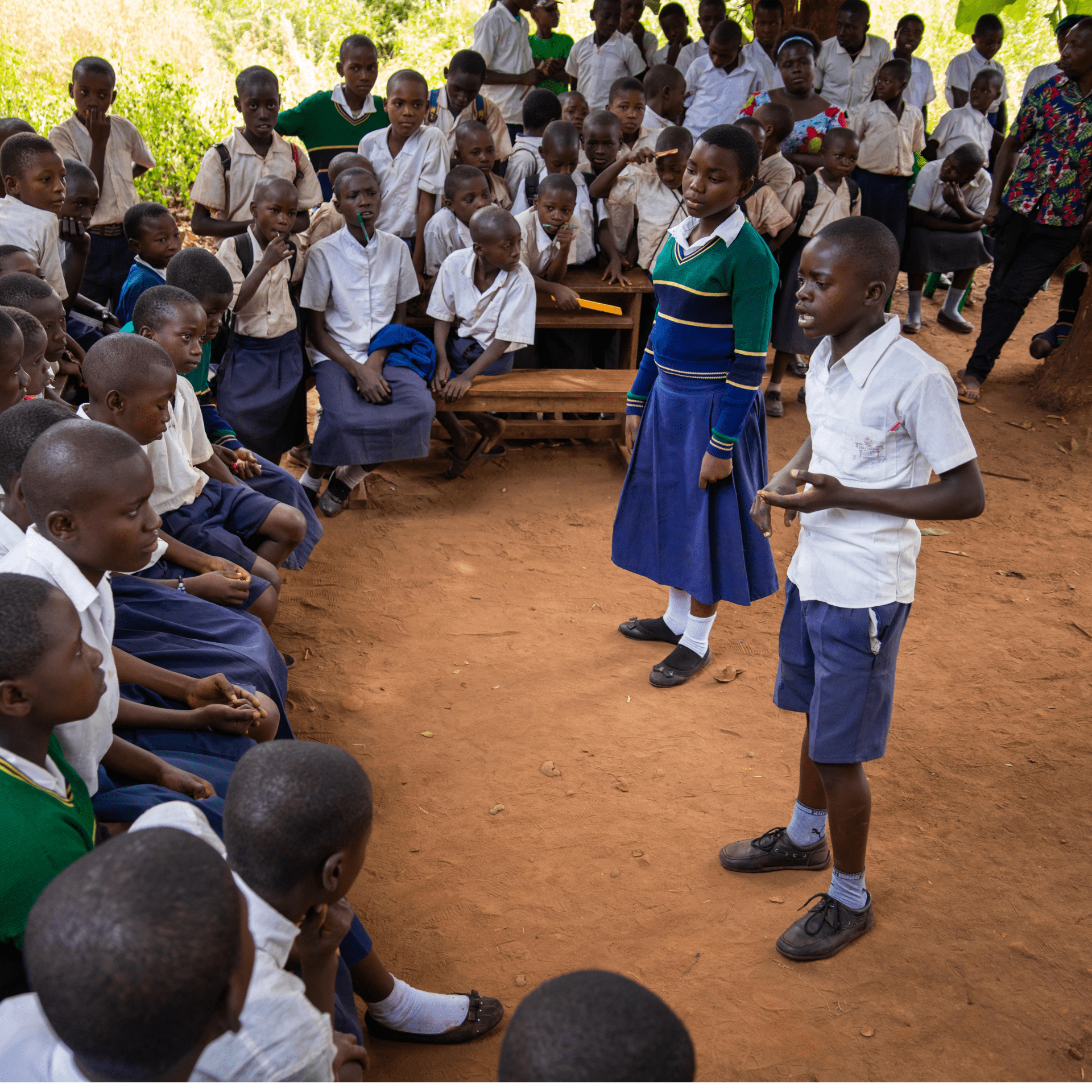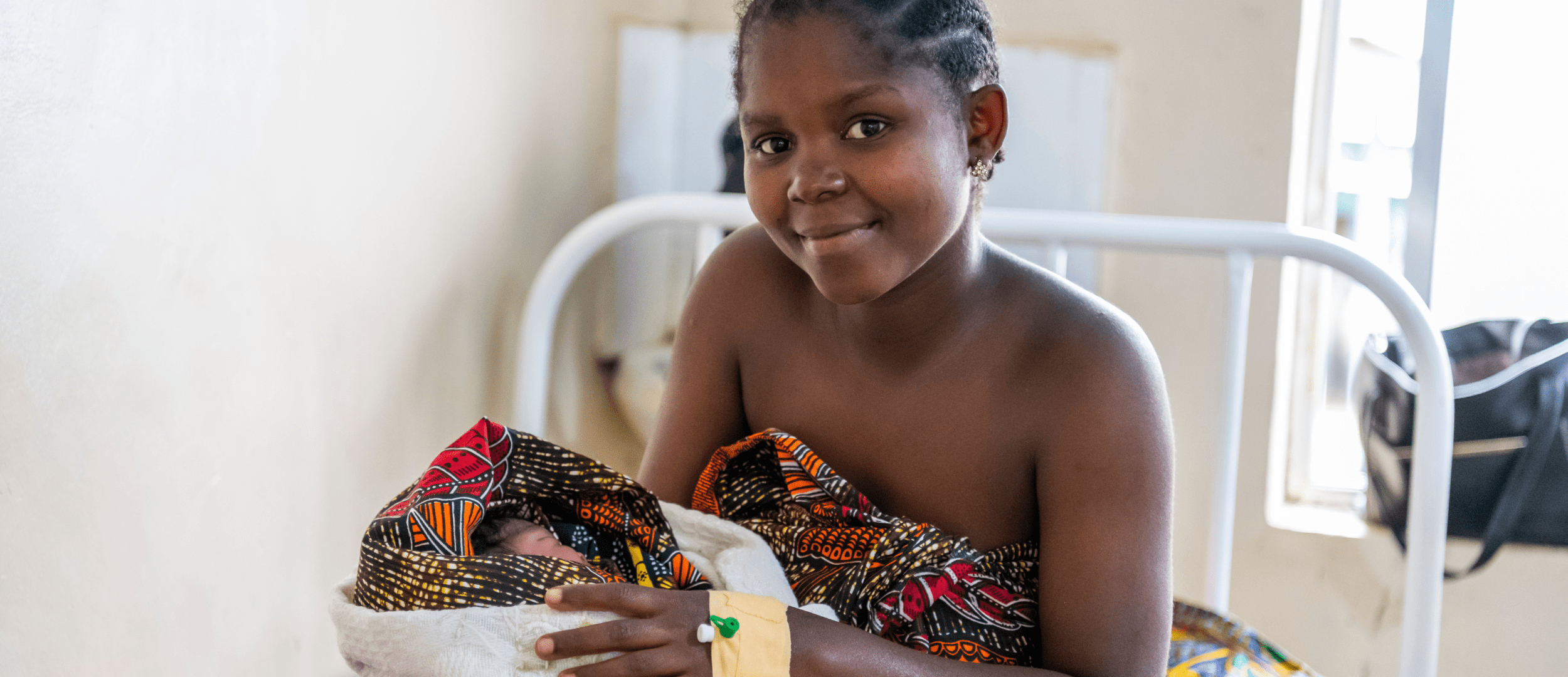
Sex education: A lever to prevent teenage pregnancy in Tanzania
In Tanzania, the lack of sex education is one of the causes of teenage pregnancy cases and sexually transmitted diseases in adolescents. Enfants du Monde, working with SolidarMed, sets up health education programs to offer the necessary tools to young people in order to avoid these situations and to build a better future.
Due to the lack of information and taboos, teenage pregnancies and sexually transmitted diseases occur regularly in Tanzania. Enfants du Monde joins forces with SolidarMed in order to address these issues and to support the Ministry of Health. We bring expertise in health education, while SolidarMed focuses on health care services. Find out how our NGO has created instructional materials and trained young people to lead collaborative sessions that focus on the actual lives of teenagers.
Teenage pregnancies
Zawadi is 14 years old. She lives in a village in the south of Tanzania where nearly 40% of young girls become mothers before 19 years old. In this region, sex education is rare and poor, while cultural and religious taboos continue to exist and there is still limited access to health centers. Two years ago, one of Zawadi’s friends became pregnant at 13 years old and was forced to drop out of school. Without proper healthcare, the difficulties during childbirth have had severe consequences on her health and her baby, a situation that repeatedly occurs in their community.
Classes about a taboo topic
At the start of the school year, Zawadi was surprised to find out that she and her classmates would attend sessions on sexual and reproductive health. She felt simultaneously curious and anxious, as this topic would be rarely tackled with her parents and barely mentioned with her friends. She has been interested in the idea of these new classes.
Julius and Neema, two youngsters at 17 years old, have been trained to lead sex education sessions to an audience of adolescents. They ensure that everyone participates and listens fully to the interrogations in order to make the interactions more accessible and comprehensible than a traditional class handled by an adult standing in front of his or her pupils.
Thanks to their frequent actions, Zawadi has felt reassured and comfortable. During the sessions, Julius and Neema explain clearly, often with pictures, topics such as puberty, contraceptions, the use of condoms, the rejection of drugs, the prevention of sexual violence, and periods. The discussions were also about teenage pregnancies and their huge consequences: unemployment, child marriage, poverty, and exposure to insecurity. They have even tackled self-confidence to reject unwanted advances, thus strengthening the ability of young people to make educated choices.
Another country, a different reality
On the other side of the world, in Switzerland, Emma is also 14 years old, but living a different life. Thanks to an excellent sexual healthcare system, she has access to an all-round education and public healthcare services. Since elementary school, she has learnt to understand her body, healthy relationships, and to make educated decisions about her sexuality. Due to the campaigns led by Santé Sexuelle Suisse, Emma knows her rights and the places to obtain reliable information. Unlike Zawadi, she can freely talk about these topics with her friends, parents, and teachers. Even if discriminations still persist in her country, she knows that she controls her body and her choices.
The importance of sex education
The stories of Zawadi and Emma portray two contrasting realities. In Tanzania, Zawadi has had to overcome cultural and even religious barriers to access vital information. In Switzerland, Emma has grown up in a system that allows her to make choices without any dangers. Yet, both of them are identically experiencing a fundamental need: the possibility to healthily grow up with information created for their age.
Our NGO has allowed Zawadi, as it has been with millions of other adolescents, to take control of their lives. We continue to support these programs that offer young girls the tools to create a future where they are protected, informed, and in control of their choices, whether they are in Tanzania or anywhere else in the world.
*Tanzania – Demographic and Health Survey and Malaria Indicator Survey 2022.
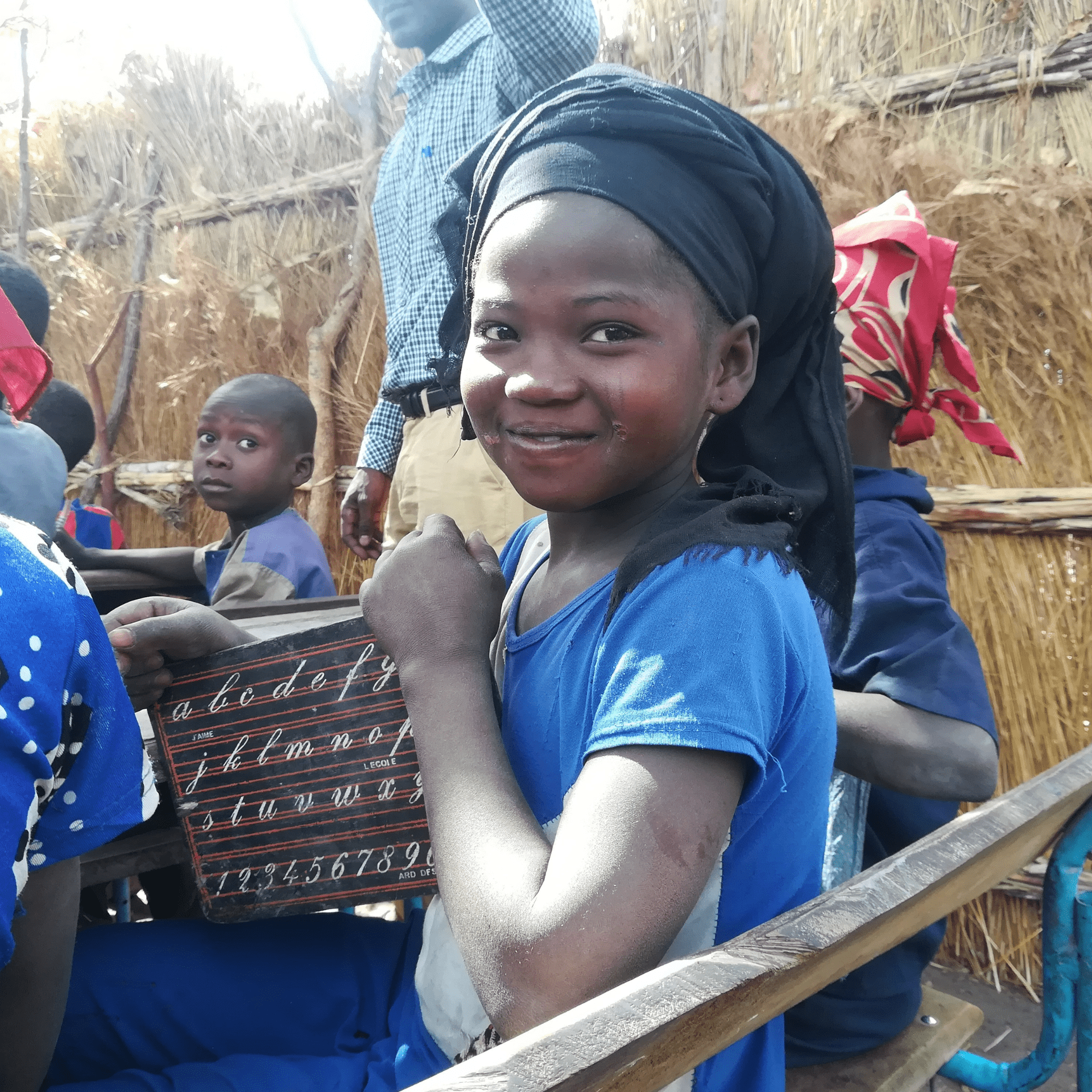
My donation makes a difference:
I am donating a bilingual textbook in French and Mooré (the local language) to 8 children in Burkina Faso to help them make better progress at school.
I am helping 250 pregnant women in Bangladesh to prepare for the birth of their baby and the risks associated with childbirth.
I am funding in-service training in bilingual education for 10 teachers in Guatemala to improve the quality of their lessons.
